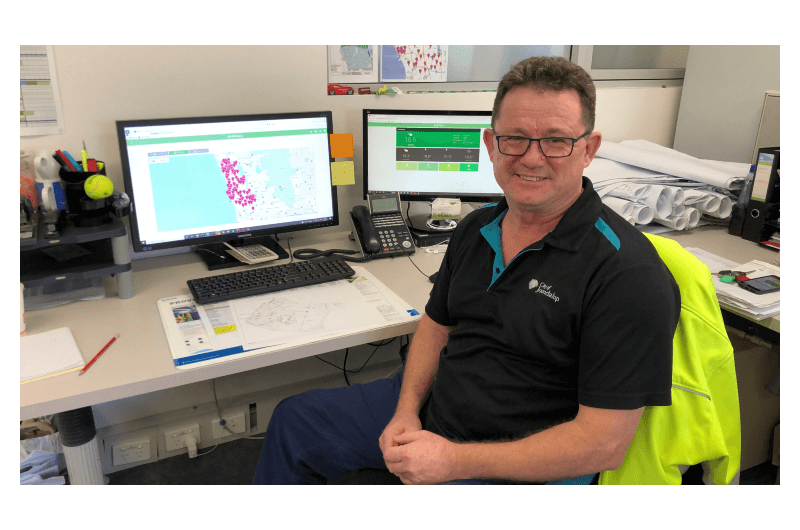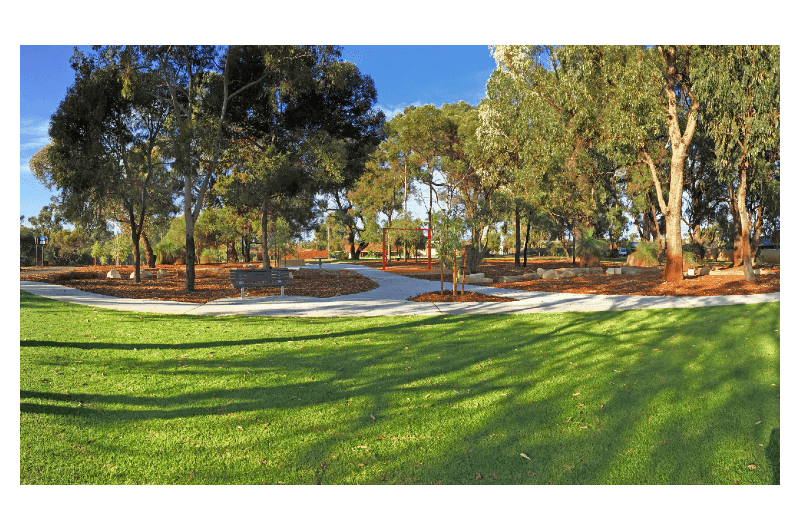City of Joondalup
Key achievements
- Groundwater use decreased in 2020/21 by 86,027kL compared to 2019/20
- Reduced the amount of groundwater used per hectare by 10% from an average of 7,500kL/ha to 6,750kL/ha
The City relies on groundwater to irrigate parks and public open spaces and seeks to use best-practice irrigation technology to ensure efficient groundwater use. Groundwater accounts for 98% of the City’s corporate water use.
We installed a Smart Control Irrigation System in 2020/21 to simplify irrigation control of the City’s parks and public open spaces. This system allows us to monitor, adjust and maintain the City’s irrigation from a smartphone, laptop, or any web-enabled device in real-time.
Applying smarts to our irrigation
Staying at the forefront of best-practice irrigation technology is critical to this. Since 2012, we have been developing and implementing a City Water Plan to guide the sustainable management of our water practices. The plan identifies the key water issues and opportunities within the City, including a commitment to efficient use of groundwater irrigation for landscaping, parks and open spaces.Smart savings
- Installation of the smart control irrigation system resulted in the City’s groundwater usage decreasing in 2020/21 by 86,027kL, compared to 2019/20.
- We have continued to achieve our City Water Plan target to reduce the amount of groundwater used per hectare (ha) by 10% from an average of 7,500kL/ha to 6,750kL/ha. This is in line with future groundwater allocation reductions proposed by the Department of Water and Environmental Regulation.
“Not long ago, if there was rain over the weekend in summer, our teams would have to all go out on Monday and turn off each individual irrigation controller at each park. This was an inefficient use of resources both in cost and staff time but, more importantly, impacted the City’s water efficiency,” City of Joondalup CEO James Pearson said.
“The central control system means responses occur in real-time to environmental conditions ensuring the City’s irrigation programs are as efficient and effective as possible. This technology will support the City to manage and enhance the parks for the community, improve operational efficiency and reduce water and power usage and costs.”

Andrew O’Farrell, Acting Technical Officer – Irrigation Services at the City of Joondalup.
How we did it
Our water saving solution – a smart control irrigation system.
We installed 209 irrigation controllers in the City’s parks and public open spaces, all of which link to a web-based central control system – SignalCloud. This allows for a more adaptive approach to irrigation management and ensures the efficient use of groundwater. The new system has helped improve water efficiency and enabled us to:
- reduce groundwater consumption
- improve automated data tracking of groundwater consumption and detect maintenance issues early
- introduce remote scheduling and maintenance of our irrigation systems, including simple seasonal adjustments
- implement smart energy operations with the installation of solar panels
The system allows us to collate data from local weather stations to program and adjust irrigation automatically based on evapotranspiration, wind speed, air temperature and more. Rain sensors and soil moisture sensors are also used to inform irrigation schedules and bore meters are used to monitor groundwater usage. This means we can respond immediately and turn off irrigation programs remotely on days when rain is forecast.
The City’s parks and public open spaces can now be monitored and managed in real-time from a mobile or laptop device. This new technology allows us to easily participate in the Winter sprinkler switch-off.

Macaulay Park – is one of the many parks and reserves benefiting from the new irrigation control system.
What we’re doing now
We continue to improve water efficiency and sustainable water management through the City Water Plan and the Waterwise Council Program.
The City’s Irrigation team is looking to further automate the irrigation control system, so it's smarter than ever. This includes responding in real-time to the City’s weather stations and soil moisture sensors – without human intervention. This will allow us to determine and adjust irrigation programs based on the environmental conditions and efficiency of watering schedules.